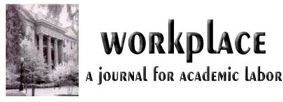Marxian Analysis of Society, School and Education SIG #157
CALL FOR PAPERS
American Educational Research Association 2013
The global financial crisis detonated in the West in 2007 has highlighted long-standing structural faults within capitalism, especially in its financialization of the economy – something that Marx and his predecessors already predicted. The current economic genocidal policies in nations such as Ireland, Greece, Portugal, Spain, Italy, and Cyprus, along with the bailouts to specific US corporations, and the slow down of China’s ‘new economy’, present a credibility check in the recognition of the predatory policies and practices of capitalism’s third hegemonic momentum. In fact such financialization of the economy, with its the recurrent and increasingly devastating financial debacles assailing the world’s capitalist economies, has been incapable of producing sustainable growth in any sector while creating economic genocide, and has resulted in driving societies towards social foreclosures strong-armed through painful strangulation of austerity policies that are asphyxiating public institutions and transforming the very notion of public good and democracy itself!
The 2013 Marxian Analysis of Society, School and Education SIG program asks scholars, educators and graduate students around the globe who are profoundly committed to the struggle for social and cognitive justice to help us examine the transformative role of education and schools in addressing the contemporary crises, as well as, addressing the role of educators in helping to resolve the contradictions of the present and to contribute to a better future for schools, education and society.
Therefore, we ask scholars, educators and graduate students to contribute papers, posters or symposium that utilize a Marxist/Class analysis that will critically address the impact of the late capitalism’s financialization of the economy on questions of schools, education and society and how to move from pre-history to history proper to create a more and just democratic society and education.
Note: All submissions will be reviewed without author identification. Please submit them without author names on the abstracts or summaries. Proposals that bear the names of the authors and/or participants will not be considered for review and, consequently, will not be considered for the SIG #157 program for the 2013 AERA Annual Meeting.
Thank You, Dr. Sheila Macrine,
2013 Program Chair
Sheila L. Macrine, Ph.D.
Chair of the Teaching & Learning Department
University of Massachusetts Dartmouth
285 Old Westport Road
North Dartmouth, Ma 02747
Phone: 508-999-8262
Fax: 508-910-6916
